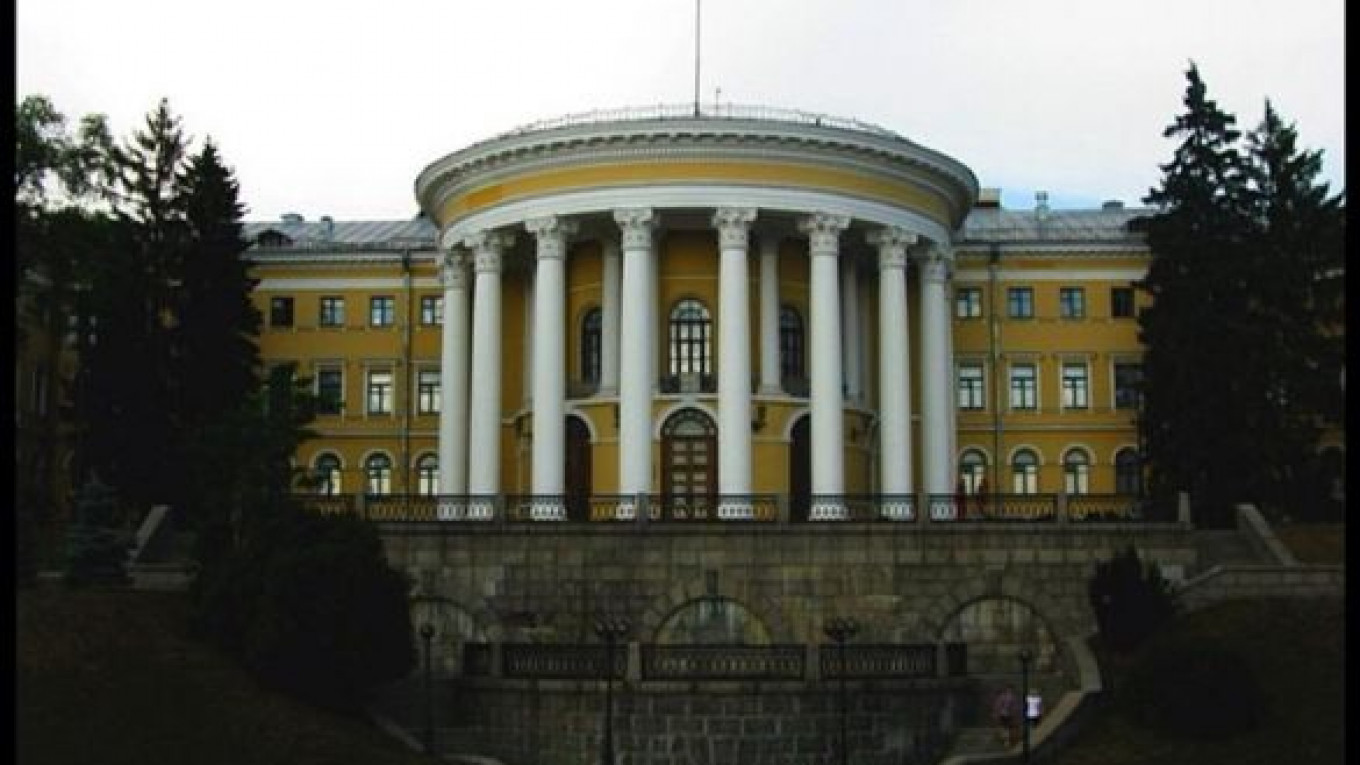Ukrainian protesters have set up camp in Kiev's October Palace to warm up and sleep during the night, as thousands of people continue to hold the fort around crucial government buildings despite freezing temperatures.
Sleeping room for more than 1,000 people was arranged in the October Palace between Monday night and Tuesday morning, said opposition lawmaker Andrei Senchenko, who took charge of accommodation in the building, which is mostly used as a concert hall.
Protesters had already set up camps inside Kiev City Hall and the trade union headquarters, which has space for another 2,000 people.
The extra space could prove to be very useful, considering the huge numbers of people reported to have taken part in the demonstrations so far. High estimates put the number of protesters on Kiev's streets on Sunday at 1.6 million, and their ranks are set to be swelled by politicians from Georgia.
An opposition party from the former Soviet republic has dispatched a delegation to Kiev in a show of support for the protesters, a lawmaker said Tuesday, Interfax reported.
The United National Movement party of Georgia's former President Mikhail Saakashvili — who came to power during the peaceful Rose Revolution and sought closer ties with the EU during his presidency — wants to "stand by the Ukrainian people," party member Giorgi Baramidze said.
Georgian supporters "will not take part in the political process," but would seek to "help with a peaceful development of events," Baramidze said before departing for Kiev with his fellow party members.
"Ukraine is important to Georgia for a variety of reasons — trade, economic, cultural, educational, political ones," he added. "We are connected by military cooperation. We hope that the Georgian government will express its position."
A Message from The Moscow Times:
Dear readers,
We are facing unprecedented challenges. Russia's Prosecutor General's Office has designated The Moscow Times as an "undesirable" organization, criminalizing our work and putting our staff at risk of prosecution. This follows our earlier unjust labeling as a "foreign agent."
These actions are direct attempts to silence independent journalism in Russia. The authorities claim our work "discredits the decisions of the Russian leadership." We see things differently: we strive to provide accurate, unbiased reporting on Russia.
We, the journalists of The Moscow Times, refuse to be silenced. But to continue our work, we need your help.
Your support, no matter how small, makes a world of difference. If you can, please support us monthly starting from just $2. It's quick to set up, and every contribution makes a significant impact.
By supporting The Moscow Times, you're defending open, independent journalism in the face of repression. Thank you for standing with us.
Remind me later.






